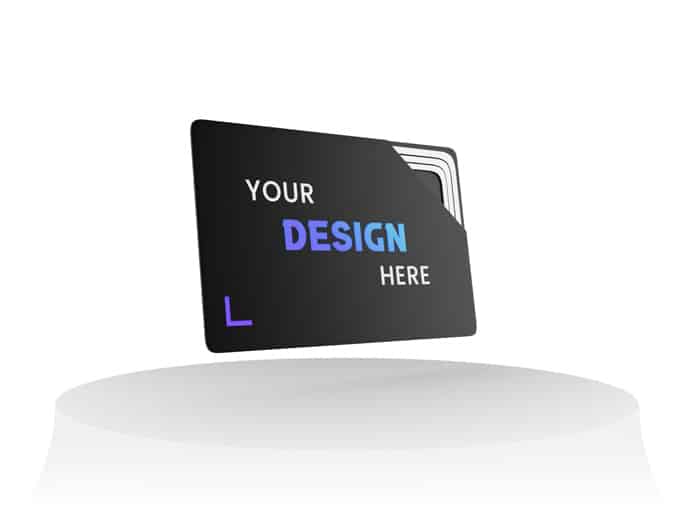
Corporate ecology: how do digital business cards contribute to environmental sustainability?

Commitment to environmental sustainability has become a major concern for many companies around the world. In the digital age, where technology shapes our business interactions, the adoption of environmentally-friendly practices is at the heart of the debate, with the aim of significantly reducing carbon footprints and promoting more responsible resource management.
Companies are thus faced with an imperative: adopt sustainable practices to minimize their impact on the planet. Among the innovations emerging, the use of digital business cards stands out as a promising solution for reconciling business with environmental protection.
Companies’ commitment to sustainability is crucial, at a time when the consequences of climate change and environmental degradation are increasingly perceptible. Reducing the ecological footprint has become a priority objective for companies wishing to play a significant role in protecting our planet.
Here’s a look at how to implement a genuine eco-environmental strategy!
What role can ecology play in a company?
Growing awareness of environmental challenges has prompted many companies to rethink their practices and integrate more environmentally-friendly strategies. Initiatives such as reducing waste, using renewable energies and minimizing paper consumption have become priorities for many organizations seeking to promote eco-responsible values.

The impact of traditional business cards on the environment
Traditional business cards, often made from paper or cardboard, have long been a symbol of professional presentation. However, their production requires significant natural resources, such as trees, water and energy, while generating considerable waste. What’s more, these cards often end up in the garbage can, resulting in a growing problem of waste and poor waste management.
Faced with these challenges, chip-enabled digital business cards have emerged as a sustainable and innovative alternative. These electronic cards are designed to be shared via electronic devices such as smartphones or computers, significantly reducing paper dependency and associated waste.
The environmental benefits of digital business cards
Digital business cards offer multiple environmental benefits. By eliminating the need for paper, digital business cards help preserve forests by reducing demand for raw materials. What’s more, their electronic nature reduces the energy consumption and carbon emissions associated with the production and distribution of physical cards. Many companies are now adopting digital business cards as an essential component of their business interactions. What are the main benefits of connected business cards?
Ease of use and connectivity
The use of digital business cards not only benefits the environment, but also reflects a commitment to innovation and modernization in an increasingly connected world. Digital business cards offer ease of use and increased connectivity, as they can be easily updated and shared across various platforms. What’s more, they also enable the integration of links to online professional profiles, promoting ongoing, effective communication.
Reduced paper and carbon footprint
One of the most obvious aspects is the significant reduction in paper use. Traditional business cards often require considerable quantities of paper, contributing to deforestation and a significant carbon footprint. Digital versions eliminate this need, reducing the demand for paper.
Paper manufacturing also involves industrial processes that consume energy and natural resources, while emitting greenhouse gases. By opting for digital business cards, professionals and companies can effectively reduce the carbon footprint associated with the production, transport and disposal of paper waste.
Easy to update and share
Traditional business cards can quickly become obsolete if information such as telephone number, e-mail address or job title changes. Digital versions enable these details to be updated instantly and easily, eliminating the need to produce new cards. What’s more, their digital nature facilitates sharing via online platforms, reducing the need for additional printing for each new contact.
Simplified storage and accessibility
Unlike physical cards, which can be lost, damaged or forgotten, digital business cards are securely stored in applications or on online platforms. They are easily accessible from a variety of electronic devices, enabling efficient management without the need for additional physical space.
Digital business cards offer an ecological and practical alternative to traditional cards, helping to preserve natural resources while simplifying and modernizing business exchanges.
Despite their many advantages, the widespread adoption of digital business cards is not a matter of course for everyone. While many professionals are turning to this promising new technology, some individuals are more resistant to change, preferring the tangibility of physical cards.
What’s more, the technology used to share these cards needs to be accessible and user-friendly, which means having the right tools.
The growing adoption of digital business cards: companies increasingly concerned about reducing their ecological footprint
Many companies, conscious of the importance of reducing their ecological footprint, have begun to adopt digital business cards. This transition is part of a wider drive for innovation and environmental responsibility, marking a positive change in the business world.
To encourage an effective transition to digital business cards and other sustainable practices, awareness-raising and education are paramount. Companies have a crucial role to play in informing and educating their employees, partners and customers about the ecological and practical benefits of this evolution.
Sustainable innovation as a path to the future
In conclusion, digital business cards today represent a significant step towards a more environmentally-friendly company. Their adoption testifies to companies’ commitment to sustainable innovation, and demonstrates a willingness to change business practices for a greener future.
Written by Camille BODET
The digital business card is a real ally for professionals wishing to promote their business effectively and instantly. In the...Lire la suite
VKARD is an innovative and effective solution to help all professionals stand out from the crowd and reinforce their brand...Lire la suite
If you prepare properly for a job interview, you'll have every chance of winning over the recruiter and getting the...Lire la suite
LinkedIn is a world-renowned business platform, and for good reason! Thanks to its many networking options, LinkedIn is the tool...Lire la suite
Find out how Leexi AI optimizes the management of videoconferences and business calls, saving time and improving efficiency.
In the professional sphere, it's vital to know how to convey certain strong values in order to stand out and...Lire la suite
Mastering the art of conversation is a real asset! By mastering the subtle art of conversation, you'll be able to...Lire la suite
Are you taking part in a trade event and want to do everything you can to make a good impression?...Lire la suite
CRM (Customer Relationship Management) represents a genuine corporate strategy for managing business contacts. This popular tool for professionals is in...Lire la suite
At a time when the professional world is in a perpetual state of competition, we might wonder what place altruism,...Lire la suite















